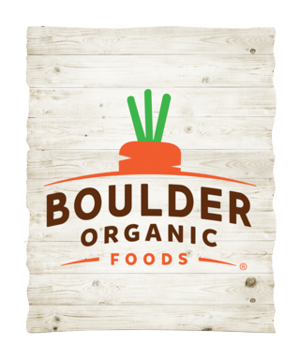
Our Practices
Food Waste
We've always found a way to utilize "ugly" produce so it does not go to waste, and now we are striving to increase our use of this produce even more. We are working to increase use of this cosmetically imperfect produce by 20% in 2021. In addition, while we've always composted all of our food waste, we are looking for more avenues to improve the usefulness of our organic food scraps. Last year, we piloted a pig slop program to pass our organic scraps on to farmers.
Energy
Since moving into our facility in 2014, we've reduced our absolute energy usage by 25%. While we are proud to have made good progress, we are redoubling our efforts in light of the urgency outlined by the IPCC report. We are retro-fitting our plant with LEDs, which will be in place for the 2020/21 soup season. Specific reductions will be listed here as we begin to see decreases in our energy use.
Water
We use a lot of water. It doesn't just go into our food, we also use it to keep everything in our facility clean and safe. Since moving into our building in 2013, we've been working diligently to improve our water efficiency. In 2018, we used 36% less water compared to the same time period in 2017. We've set a goal to reduce our water consumption by 451,000 gallons by the year 2022 (which would be a 20% total reduction since our baseline year in 2015). Furthermore, in 2019 we conducted a water study to understand exactly how much water we use and where. In 2020 we used a whopping 25% less water than in 2019!
Waste
When we sold our first tub of soup in 2009, we committed to reducing and managing our waste. We’re happy to report that we’ve successfully composted all of our food waste since then! In fact, since we started tracking in 2014, we've composted or recycled an average of 86% of our waste. Unfortunately in 2018, we fell short and our diversion rate dropped to 74%. We are ambitiously getting back on track and are working toward hitting an annual diversion rate of 90%. As part of achieving our 90% goal, we implemented the collection of soft plastics in the summer of 2020 - always pushing for continuous improvement!
Emissions
In May 2019, we set science-based targets for reducing our Scope 1 and Scope 2 emissions. It is our goal to quantify our Scope 3 emissions and set science-based targets for their reduction by Dec 31, 2020. Our target goal is to reduce our Scope 1 and 2 emissions overall by 47% by 2026, and to reduce Scope 1 and 2 by 100% by 2056.
In addition to emissions reduction, we are working to achieve net-zero status by 2030 and to offset all Scope 1 and 2 emissions by 2022.
Packaging
Oh packaging. We love our packaging because it brings you our fresh organic foods safely, without the use of preservatives. However, we know we can do better, and thanks to initiatives like the New Plastics Economy Global Commitment, the plastics industry is stepping up and working with brands like us to help us reach our goals. Our tubs & lids are recyclable, but the lock seal film is not currently recyclable. We are working with our partners to convert our packaging to a 50% recycled content tub & lid by 2025. We experimented with a peelable film seal in mid 2019 but the seal proved ineffective. In the interest of food safety and quality, we still use our lock seal to keep your soup fresh!
Team
We love our team! We work with the best folks around and do our best to create a great working environment for all. During the COVID-19 pandemic we have put many important measures in place to keep the workplace safe for our "front-line" workers. We quickly implemented social distancing protocols, mandatory masks as additional PPE, and have a no-touch thermometer which enables us to take temperatures at the start and end of each shift. Perhaps most importantly, we extended paid sick leave to 2 weeks for all employees in the event of illness or illness in their family.
Community
We love our community! During the COVID-19 crisis, we added Boulder Valley School District as a donation partner and have continued to donate to Community Food Share, the local Feeding America food bank. In May 2020 we participated in our first LEAD on Climate virtual advocacy day. We stay involved with our industry to learn from others, to keep pushing ourselves to do better, create better products and devise new solutions to challenges. As a refrigerated foods manufacturer, we have a unique opportunity to work on improving our refrigerant management and spreading the word about how we've done it. As a dedicated organic foods maker, we can help guide others in making the transition to organic. And as a heavy user of ugly produce, we can help other businesses increase their use of cosmetically imperfect produce.








